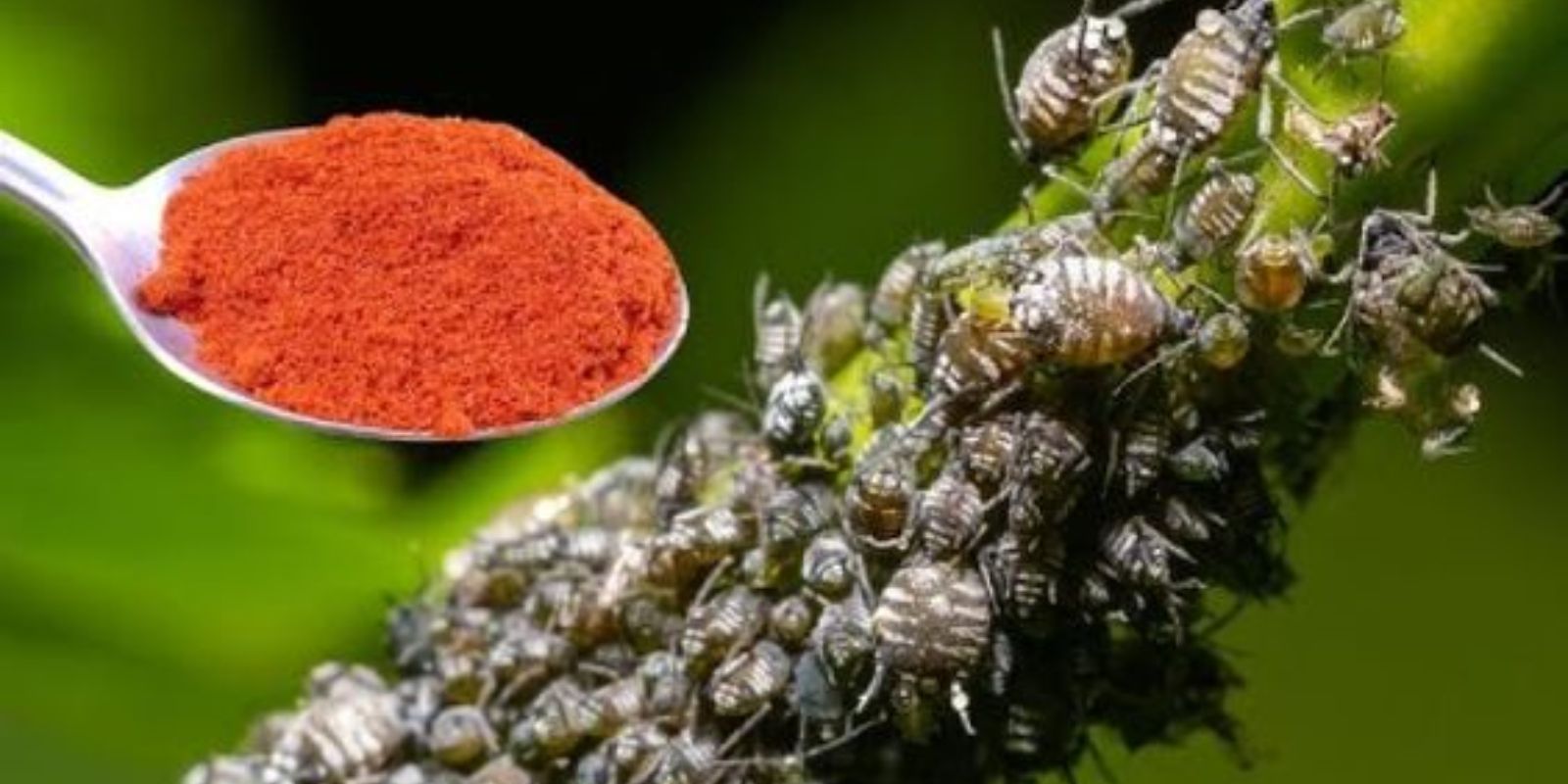In the world of gardening, maintaining a lush and healthy garden can often feel like a constant battle against pests. Aphids, snails, and other garden nuisances can quickly turn a thriving oasis into a devastated landscape. Many gardeners turn to chemical solutions, but what if there was a more natural, effective solution that you likely already have at home? In this article, we’ll explore a powerful, chemical-free insecticide made from a common household ingredient that works wonders against aphids, snails, and other garden pests.
The Power of Household Ingredients
Imagine an insecticide so potent that it can make aphids disappear within minutes and send snails fleeing from your garden. What if I told you that this magical substance is likely sitting in your pantry right now? That ingredient is none other than salt. Yes, the same salt you use to season your meals has remarkable pest-fighting properties.
Why Salt Works
Salt is a natural mineral composed of sodium chloride. Its effectiveness as an insecticide is attributed to its ability to dehydrate pests. When pests come into contact with salt, it disrupts their cell membranes and causes them to lose moisture rapidly. This dehydration effect can be fatal to many insects and slugs, making salt a surprisingly powerful weapon in the garden.
Aphids
Aphids are small, sap-sucking insects that can reproduce quickly and cause significant damage to plants. They are notorious for their ability to spread diseases and stunt plant growth. When treated with a salt solution, aphids experience dehydration and die within minutes. The solution is straightforward: dissolve a small amount of salt in water, and spray it directly onto the affected plants. Be cautious not to use too much salt, as excessive amounts can harm your plants as well.
Snails and Slugs
Snails and slugs are notorious garden pests that feed on a wide range of plants. They are particularly attracted to moist environments, which makes them a common problem in gardens. Salt is highly effective against these mollusks. When salt comes into contact with snails or slugs, it creates a barrier that they avoid, effectively deterring them from entering your garden. You can create a salt barrier around the perimeter of your garden or directly apply salt to areas where snails and slugs are most active.
How to Use Salt Safely in Your Garden
While salt can be an effective pest control method, it’s important to use it wisely to avoid any potential harm to your plants and soil. Here are some tips for using salt as an insecticide:
- Use a Diluted Solution: For aphids, mix one to two tablespoons of salt in a gallon of water. Spray this solution onto the affected areas of your plants. For snails and slugs, you can create a stronger solution by mixing one part salt with one part water and applying it directly to their trails or hiding spots.
- Apply Sparingly: Overuse of salt can lead to soil salinity issues, which can be harmful to plants. Use salt only as needed and in moderation.
- Avoid Direct Contact with Plants: When spraying a salt solution, be careful not to soak your plants. Aim for the pests directly and avoid getting the solution on the leaves and stems of your plants.
- Monitor Soil Health: Regularly check your soil for signs of increased salinity, such as stunted plant growth or poor seed germination. If you notice any issues, consider leaching the soil with plenty of water to flush out excess salt.
Alternatives and Considerations
While salt is a powerful tool in the fight against pests, it’s not the only natural solution available. There are several other methods you can use in conjunction with salt to create a comprehensive pest management strategy:
- Neem Oil: Derived from the seeds of the neem tree, neem oil acts as a natural insect repellent and can help control a variety of pests, including aphids.
- Diatomaceous Earth: This natural powder made from fossilized algae is effective against a wide range of insects. It works by causing physical damage to the exoskeletons of pests, leading to dehydration and death.
- Garlic and Chili Pepper Spray: A mixture of garlic and chili peppers in water can create a potent spray that deters many garden pests due to its strong odor and spiciness.
Conclusion
Insecticides don’t always have to be chemical-laden to be effective. By harnessing the power of salt, a common household ingredient, you can create a strong, natural pest control solution that tackles aphids, snails, and other garden pests with ease. Remember to use salt wisely to avoid any potential negative effects on your garden and consider integrating other natural methods for a well-rounded approach to pest management. With these strategies, you can keep your garden thriving and free from unwanted visitors.

